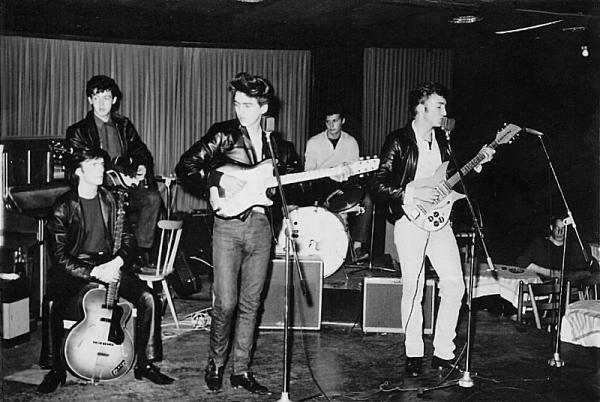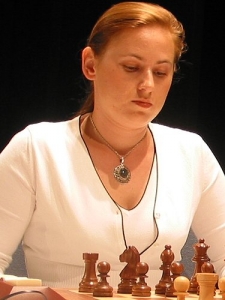In his book Outliers: The Story of Success, Malcolm Gladwell says, “Researchers have settled on what they believe is the magic number for true expertise: ten thousand hours.” For reference, 10,000 hours would translate into (for example) 20 hours a week for ten years.
What 10,000 hours gets you
The bar for “true expertise” here is pretty high: Gladwell and the researchers he’s referring to are talking about being not just really good at something, but world-class-a Meryl Streep, an Arnold Palmer, a Yo Yo Ma, a Marie Curie. To put this in perspective, earning my first dan black belt in Taekwondo Chung Do Kwan at a rigorous Taekwondo school took me something on the order of 600 hours of practice, a far cry from 10,000 hours. The difference between 600 hours and 10,000 hours is the difference between me and Jackie Chan.
By the way, if you’re thinking “Practice is fine, but it’s no substitute for natural talent,” I direct you to my article “Do you have enough talent to become great at it?” The value of “talent” is surprisingly limited.
Beyond just practicing
Gladwell’s point is fascinating, especially when we realize how much research supports it, but Geoffrey Colvin offers a further insight in his book Talent Is Overrated: What Really Separates World-Class Performers from Everybody Else. In that book, he gives some of the same kinds of evidence Gladwell discusses for practice, not “inborn talent,” being the key to world-class performance, but goes further to say that not all practice is created equal. After all, if it just took 10,000 hours of doing something to become truly great at it, why isn’t every accountant who’s been working full-time for at least 5 years phenomenally wonderful at accounting? The key is what Gladwell and others refer to as “deliberate practice.”
[Deliberate practice] definitely isn’t what most of us do on the job every day, which begins to explain the great mystery of the workplace-why we’re surrounded by so many people who have worked hard for decades but have never approached greatness. Deliberate practice is also not what most of us do when we think we’re practicing golf or the oboe or any of our other interests. Deliberate practice is hard. It hurts. But it works. More of it equals better performance. Tons of it equals great performance.
In other words, if you want to become great it’s not enough to show up and do what you’re supposed to, whether we’re talking about hitting golf balls, reconciling accounts, or teaching seven-year-olds. To become great, we have to push ourselves, to seek out great teachers or sources of learning, constantly create new challenges, and pay close attention to what results we get. Colvin describes deliberate practice by example: “Hitting an eight-iron 300 times with a goal of leaving the ball within 20 feet of the pin 80 percent of the time, continually observing results and making appropriate adjustments, and doing that for hours every day.”
Examples of practice vs. deliberate practice
I can feel the difference when I try deliberate practice in my own life. When I’m studying Taekwondo, it’s the difference between just trying to get through a sequence of moves and pushing myself to concentrate on specific aspects of every single motion, like stance, breath control, or reaction force. For an example in writing, several years ago I joined The Daily Cabal, a group that requires me to create entirely new stories in less than 400 words, often on a weekly basis. For some of these I’ve pushed myself, practiced very deliberately-for instance, “A Is For Authority” took serious effort, concentration, and sweat-while “The Plot Against Barbie’s Life” practically wrote itself as soon as I came up with the title. (By the way, for writers who may be reading this post, as of July 27, 2010 we’re accepting applications for new Cabal members.)
Is deliberate practice always productive?
Note that deliberate practice doesn’t necessarily make a better immediate result. My short story “A Ship that Bends” was rewritten numerous times and eventually became a published finalist (but not a winner) in the Writers of the Future contest, by far the largest English language speculative fiction contest in the world. My novelette “Bottomless” (about villages on ledges deep inside a bottomless pit) won second place in the contest the following year and was another of those pieces that came out fairly easily. It’s probably worth noting that by the time I wrote those stories, I suspect I already had at least a thousand hours of writing practice.
The upshot is simply this: practice-even deliberate practice-may produce either good or lousy immediate results, but only long-term, deliberate practice produces the skills to consistently deliver great results.





 Becoming excellent at something really does take a long time. What’s more interesting is that, in a manner of speaking, that’s all it takes. In other words, that old saw “You can do anything you set your mind to” appears to have a lot of truth to it, truth backed by fistfuls of scientific studies.
Becoming excellent at something really does take a long time. What’s more interesting is that, in a manner of speaking, that’s all it takes. In other words, that old saw “You can do anything you set your mind to” appears to have a lot of truth to it, truth backed by fistfuls of scientific studies. All of this about talent that I’m casually summing up in a pretend conversation comes from the arguments found (among other places) in two recent, very well-written books. Malcolm Gladwell’s Outliers does a lot to explain how the very best people in every field-music, chess, sports, business, and so on-all seem to have gotten their skills by working very hard for a long time. In fact, Gladwell will tell you how long that period of time is: 10,000 hours. It takes about 10,000 hours of practice in practically anything to become world-class at it.
All of this about talent that I’m casually summing up in a pretend conversation comes from the arguments found (among other places) in two recent, very well-written books. Malcolm Gladwell’s Outliers does a lot to explain how the very best people in every field-music, chess, sports, business, and so on-all seem to have gotten their skills by working very hard for a long time. In fact, Gladwell will tell you how long that period of time is: 10,000 hours. It takes about 10,000 hours of practice in practically anything to become world-class at it.